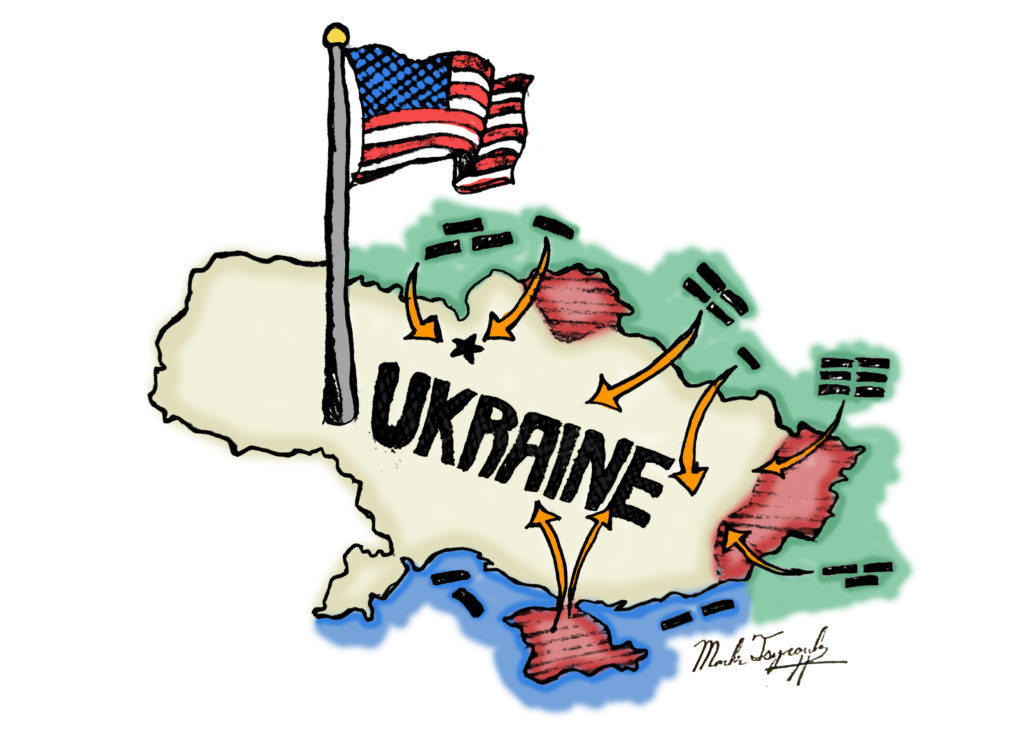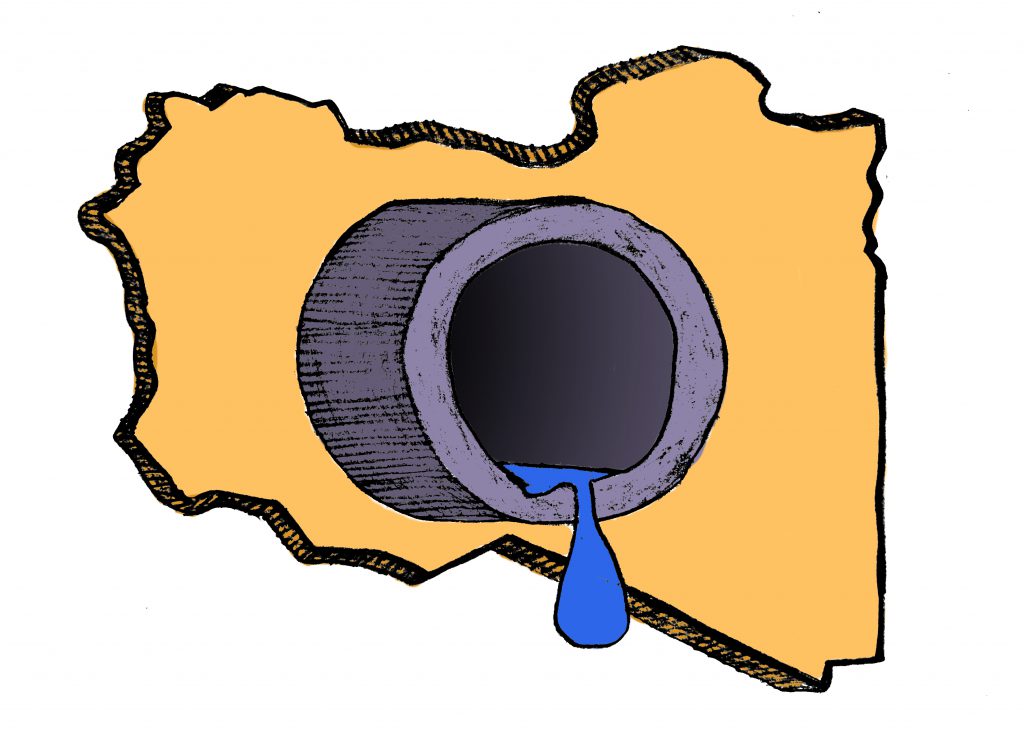In deciphering Vladimir Putin’s invasion of Ukraine, some political commentators are covering the war with deceitful contrarianism, condemning the United States for “provocative” foreign policy in the Slavic region. Supposedly, the eastward expansion of NATO – a defensive military alliance that has yet to attack Moscow since 1949 – makes people empathetic towards nuclear conflict.
America is not the villain here. Putin’s “security concerns” and accusations of genocide are unfounded. If anything, this conflict reveals Russia’s symbolic loss on the culture war with westernization.
When the USSR collapsed, the Kremlin was convinced its fourteen former Soviet republics would crawl back to orbit. Russia is a global superpower and a strong economic authority in Eurasia. It would benefit from Ukraine’s labor, agricultural richness, and geography relative to the Black Sea. Combined with a shared history and culture, Kiev should be longing for Moscow’s guidance.
No Ukrainians, nor any of the post-Soviet republics, have such intentions. Anti-Russian sentiment is pervasive in Lithuania, Ukraine, and Georgia – contributing to their rising neo-Nazi problem – largely due to resentment over their second-rate identities under the Soviet era.
The USSR entailed a Russo-centric cultural, political, and economic dominance. Soviet victories were framed as Russian accomplishments. Moscow and St. Petersburg had overflowing grocery stores to woo westerners of communist prosperity. Outsiders tolerated half-empty shelves and breadlines for decades. The smaller republics bore the brunt of much bleaker periods, including Chernobyl, Holodomor, the Aral Sea crisis, and the “Polygon” testing site.
If the Soviet Union were an American high school, Russia is the class jock reminiscing its prime years on the football team. The outcasts have no glory to bask in. They want to move on and reinvent themselves. They surely aren’t interested in a 30th class reunion.
So when Latvia, Lithuania, and Estonia finally joined NATO and the European Union in 2004, the Kremlin scoffed at it. Membership of satellite states – e.g. Poland and Romania –- already bruised Russia’s ego. The addition of former comrades was a greater betrayal. Kremlin propaganda alleged the West would abandon their assurance of security and autonomy.
At his 2005 national address, Putin proclaimed the Soviet dissolution was “the greatest geopolitical catastrophe of the century.” It was a dog-whistle response to the region hinting the president viewed their independence in vain.
That’s because NATO’s military alliance secures a pathway to economic networking. While NATO and the EU are separate intragovernmental entities, their functions complement each other. Membership expedites the Visa Waiver Program (VWP), allowing Americans to visit the Baltics visa-free for up to 90 days (and vice versa) to cash in on tourism, integrated banking, and more robust business ties.
The Baltics are incentivized to associate with the U.S. to preserve their stability, helping these states pass the guidelines necessary to pursue greater economic mobility. In short, It’s neocolonialism that’s worth it.
Today, the Baltics have the highest per-capita GDP, life expectancy, and Human Development Index (HDI) amongst all post-USSR republics, including the Russian Federation. Compare the numbers with the bleak economies of neighboring Ukraine and Belarus, both of which encounter heavy interference by Putin. The Millennials in these states, growing up under globalization and wider access to American culture, yearn for democracy, trade liberalization, job opportunities, and a lifestyle the West showcases.
Instead, Putin chose violence. Let’s not forget he similarly backed two breakaway regions – South Ossetia and Abkhazia – in Georgia before occupying Crimea and Eastern Ukraine in 2014. More recently, Russia helped crush protests in Belarus following Alexander Lukashenko’s fraudulent 2020 election victory, as well as Kazakhstan’s anti-government demonstrations earlier this year to fight off “international terrorists.” Without distinct borders, NATO membership is impossible unless these states overthrew their Kremlin-backed regimes and let go of their breakaway regions, appeasing a divide-and-conquer strategy.
Ukraine’s perseverance to westernize anyway made this invasion, a measure of last resort, inevitable. Don’t be surprised if Belarus or Moldova encounter “special operations” of their own. The eastward expansion presents a heavy blow to Russian nationalism and its geopolitical influence, both of which are exploited to secure the interests of oligarchs and Putin’s autocracy. Eastern Europeans outside of that circle are welcoming NATO, not rejecting it.
The closer it encroaches on Moscow, the more ordinary Russians will recognize their president has robbed them of a better quality of life. When they begin demanding results, that’s when Putin’s “security concern” unravels.


